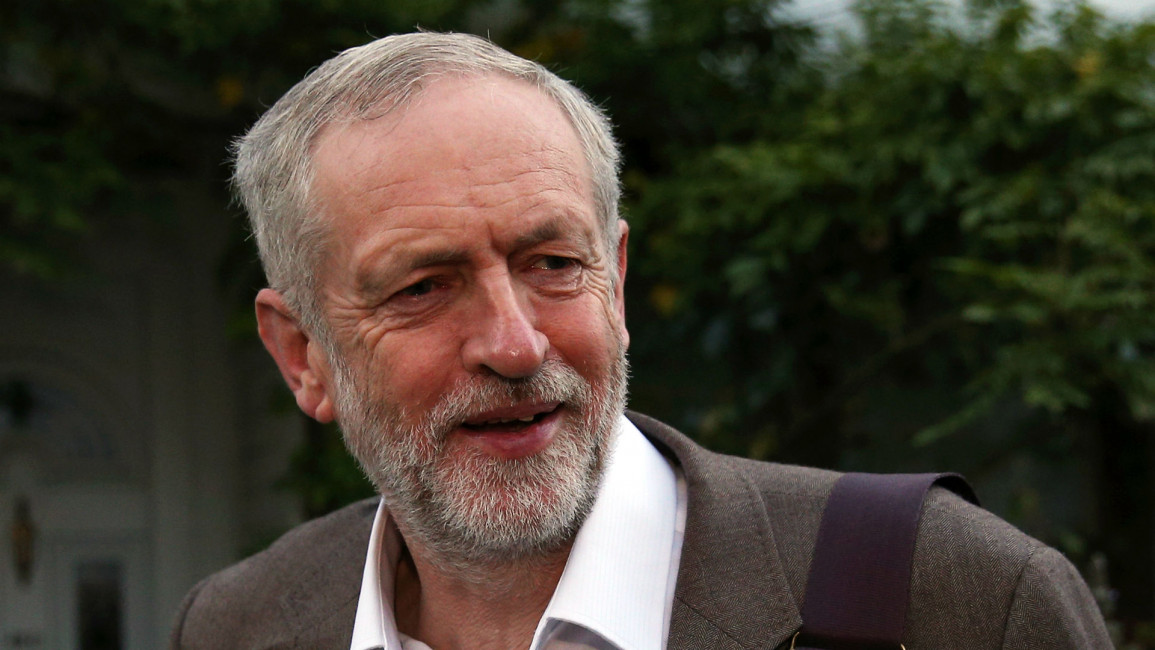
Palestine, not Syria, could define Labour's foreign policy
The UK government could be on its way to start a bombing campaign in Syria over the coming weeks, ostensibly targeting the Islamic State group (IS).
The question is whether the opposition, the Labour Party, can seriously challenge the Conservative Party's plans, or whether other Middle East issues will form the basis of Labour's foreign policy.
Mission creep has been underway for months now, with the UK's assassination of two of its own citizens in drone attacks inside Syria as the air war went over the border from Iraq.
Defence Secretary Michael Fallon led the government's bold pronouncements at the Conservative Party conference, stating "ISIL's [IS] terror in Iraq and against us here is directed from northern Syria. [IS] recognises no borders and has to be taken on wherever it roots. So we should not leave it to French, Australian, or American aircraft to keep our own streets safe."
Labour, being by far the largest opposition party in the House of Commons, are in a position to make things difficult for the government, as they did in 2013.
Prime Minister David Cameron needs the support of Labour MPs to commit UK troops to war, and an estimated 20 Conservative MPs in the government's slender majority said they will oppose military action.
A free vote on Syria?
Shadow chancellor John McDonnell recently expressed hope that Labour MPs will be given a free vote on the issue, and he hopes that party leader Jeremy Corbyn will be able to persuade MPs to oppose military action without having to impose his view on the party.
| Corbyn has already signalled his intent to apologise on behalf of the Labour party for the invasion of Iraq |
With the parliamentary Labour Party that is generally closer to Cameron than to Corbyn on foreign policy issues, opposition rebellion on Syria is unlikely.
But there are other potential flashpoints that might define a fresh Labour foreign policy approach.
Corbyn has already signalled his intent to apologise on behalf of the Labour Party for the invasion of Iraq.
This will cause considerable embarrassment to Cameron, and much of the Conservative and Labour parties in general, who still attempt to defend Britain's actions in following the US to war.
Along with Iraq, the situation in Palestine and Israel could be one that Labour uses to define its foreign policy.
Corbyn has been consistent so far in taking the pluralistic, inclusive approach he espoused during his leadership campaign, hence the stance on Syria. But he has also shown no fear.
At a Labour Friends of Israel event at Labour party conference last week, he used the occasion to call for the lifting of the siege of Gaza.
The beseiged Palestian territory is just one issue on which supporters can expect Cobryn to lead his party with distinction.
Corbyn has been involved in the Israel-Palestine conflict debate for decades and will be well-aware of the deteriorating situation in the occupied West Bank.
While Cameron's point of departure will be that increasing Israeli repression is a public relations problem for the Jewish state, Corbyn will push for conflict resolution. Again, this has potential to embarrass the Conservatives.
A brief look at the occupied West Bank reveals an accelerating land grab carried out by an out of control Jewish extremist settler movement, recently referred to as "the bullet proof vest of the State of Israel" by the Deputy Prime Minister Silvan Shalom.
The settlers afford impunity for crimes as heinous as the burning alive of a toddler, something admitted by Defence Minister Moshe Yaalon.
Tzipi Hotovely, deputy minister of foreign affairs and Israel's top-ranking diplomat, has stated bluntly that Israel will not hand back any of the West Bank to Palestinian control.
Add to the mix the violations of al-Aqsa mosque by Jewish settlers and Israeli forces and Palestinians are faced with a rapacious opponent and lack any realistic prospects for a political settlement. In these circumstances, a third intifada would surprise nobody.
The usual response from both major UK parties is to back Israel but under Jeremy Corbyn, Labour will offer more than the usual platitudes.
The Palestinian cause could offer the party a way to start to recover its reputation after the disaster of the Iraq war.
This would help cement Corbyn's reputation as a politician of conviction and substance able to deliver change.
Tom Charles is a London-based writer, editor and literary agent. He previously worked in the UK parliament, including as a lobbyist for Palestinian rights. He has contributed to Jadaliyya and the Journal of Palestinian Refugee Studies.
Opinions expressed in this article remain those of the author and do not necessarily represent those of al-Araby al-Jadeed, its editorial board or staff.




